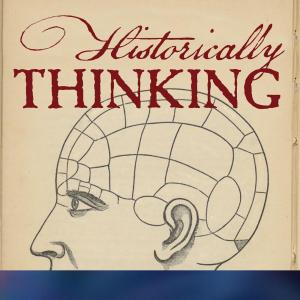Historically Thinking

War and Power: Phillips Payson O’Brien on Who Wins Wars and Why
For at least two centuries, ideas of international relations and grand strategy have been premised on the notion of “great powers.” These were mighty states uniquely able to exert their influence through overwhelming military force. In the words of friend of the podcast Leopold von Ranke, a great power was one who could “maintain itself against all others, even when they are united”—but my guest, Phillips Payson O’Brien, argues that this definition is ahistorical nonsense.
Indeed “great power” he says, has always been a tautology. Nor has it been helpful or accurate to focus who has the biggest armies. And dreaming of decisive battle has blinded us to what truly determines victory: the capacity to mobilize and sustain industrial power, logistics, technology, and global reach.
In his new book War and Power: Who Wins Wars and Why, O’Brien dismantles some popular myths of military and diplomatic history and replaces them with a far more dynamic picture—one that redefines how states fight, how they win, and how we should understand power itself in the twenty-first century.
For this episode's show notes, and other resources, go to the Historically Thinking Substack
Chapters & Timestamps
- 00:28 – Introduction: Challenging the Great Power Myth
- 03:25 – The Persistence of Short War Myths
- 08:22 – The Political Nature of Warfare
- 14:06 – Power Rightly Understood: Economic and Technological Strength
- 20:59 – Society, Structure, and the British-American Power Transition
- 27:36 – Constructing and Regenerating Military Forces
- 46:16 – The Importance of Strong Alliances
- 39:23 – Understanding War: Beyond Battles and Single Weapons
- 45:16 – Human Elements: Leadership, Training, and Morale
- 49:54 – Technological Adaptation: From WWI Aircraft to Modern Drones
- 57:30 – Applied History and the Problem of Transparency
- 57:52 – Outro / Credits






 Visit Podcast Website
Visit Podcast Website RSS Podcast Feed
RSS Podcast Feed Subscribe
Subscribe
 Add to MyCast
Add to MyCast